HR’s Vital Role in Ensuring Environmental, Social, and Governance (ESG) Compliance for Companies
According to a recent survey conducted by Moore Global, 84% of companies that invest in environmental, social, and governance (ESG) initiatives see greater customer retention than companies that do not engage in related strategies. In addition, 70% of employees and job seekers indicate that they want to work for a company that is focused on sustainability. It’s clear that in an era of growing social consciousness and environmental awareness, companies are increasingly expected to demonstrate their commitment to sustainable practices and responsible business operations.
This paradigm shift has brought ESG compliance to the forefront of corporate priorities. While traditionally seen as a function separate from HR, the human resources department plays a crucial role in driving ESG compliance within organizations. In this blog post, we will explore how HR can contribute to fostering a culture of sustainability and responsibility by integrating ESG principles into various aspects of talent management and company operations.
- Recruiting and Onboarding
The first step toward ensuring ESG compliance begins with the recruitment and onboarding process. HR professionals are uniquely positioned to infuse ESG values into the organization’s DNA right from the start. By crafting job descriptions that emphasize sustainability and ethical considerations, HR can attract like-minded individuals who align with the company’s ESG objectives. During the onboarding process, HR can educate new hires about the organization’s commitment to ESG principles and provide training on sustainable practices, fostering a culture of responsibility from day one. - Employee Engagement and Development
HR plays a pivotal role in employee engagement and development, which are crucial for driving ESG compliance. By creating platforms for open communication and feedback, HR can encourage employees to contribute ideas and suggestions for improving the company’s ESG performance. Furthermore, HR can support initiatives such as employee resource groups focused on sustainability or social impact, enabling employees to collaborate on ESG-related projects and initiatives. Additionally, HR can facilitate ongoing training and development programs that promote ESG awareness and equip employees with the knowledge and skills necessary to implement sustainable practices in their day-to-day work. - Performance Evaluation and Incentives
Integrating ESG metrics into performance evaluations and incentives is an effective way to embed sustainability and responsibility within the company’s performance management framework. HR can work with relevant stakeholders to develop key performance indicators (KPIs) that measure employees’ contribution to ESG objectives. By aligning compensation, rewards, and recognition programs with ESG performance, HR can reinforce the importance of sustainability and social responsibility, motivating employees to prioritize these aspects in their work. - Policies, Compliance, and Reporting
HR departments are responsible for establishing and implementing company policies and ensuring compliance with relevant regulations. When it comes to ESG, HR can collaborate with cross-functional teams, including legal, finance, and operations, to develop policies and procedures that promote sustainable practices and align with industry standards. HR can also coordinate ESG-related reporting, ensuring accurate and transparent disclosures on the company’s environmental and social impact. By integrating ESG considerations into internal policies and compliance frameworks, HR demonstrates the organization’s commitment to responsible business practices. - Partnerships and Stakeholder Engagement
HR professionals often engage with external stakeholders, such as vendors, suppliers, and community organizations. By actively seeking out partners who share the company’s ESG values, HR can foster a network of sustainable and responsible collaborators. Moreover, HR can leverage these partnerships to drive initiatives that benefit local communities, promote environmental stewardship, and support social causes, thereby amplifying the company’s positive impact beyond its immediate operations.
As the significance of ESG compliance continues to grow, HR departments have a critical role to play in ensuring that companies uphold sustainable and responsible business practices. By integrating ESG principles into talent management processes, employee engagement initiatives, performance evaluations, policies, compliance frameworks, and stakeholder engagements, HR can drive meaningful change within organizations. By working collaboratively across departments, HR can help create a culture that embraces ESG values, positioning the company as a responsible corporate citizen, and contributing to a more sustainable and equitable future.




